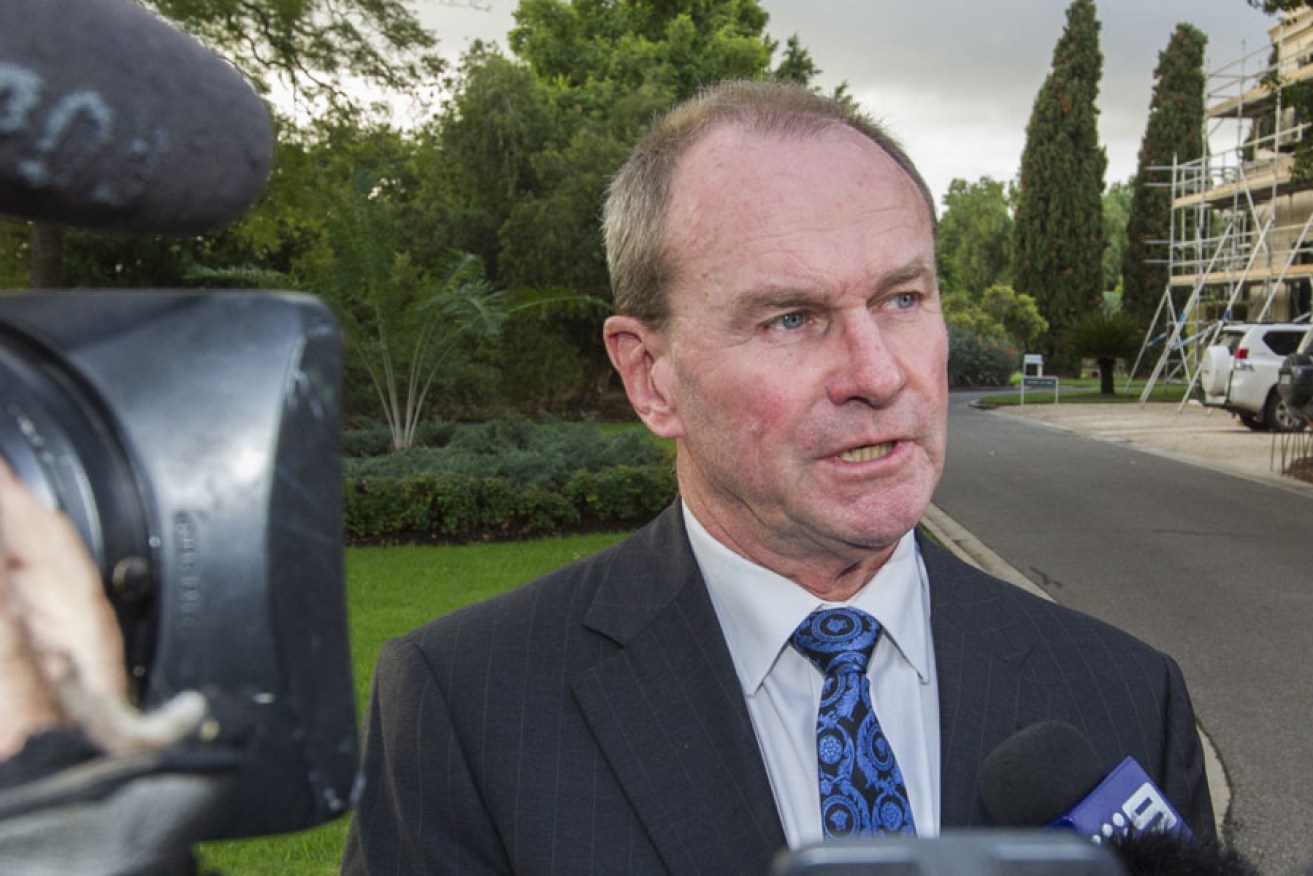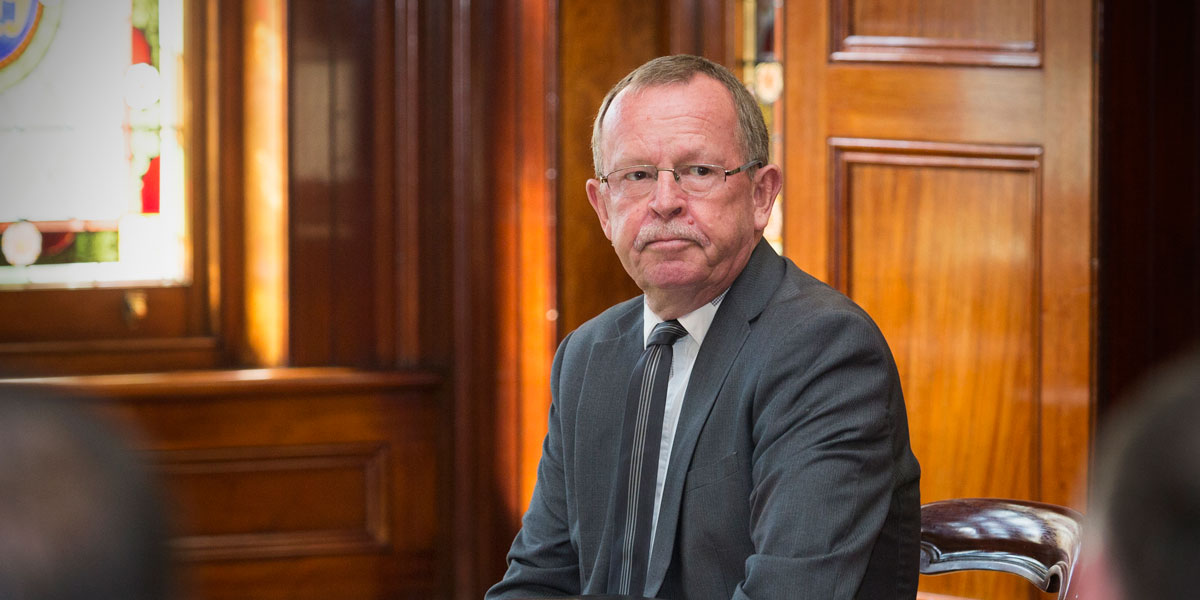MHS and Brock must disclose donations – but not yet

Martin Hamilton-Smith and fellow independent minister Geoff Brock will have to disclose campaign donors - but not until after the next state election.
The Weatherill Government’s independent kingmakers, Martin Hamilton-Smith and Geoff Brock, will be forced to disclose re-election campaign donations for the first time – but not until after the March 2018 poll.
Legislative changes to the Electoral Act come into effect today, giving candidates the option to receive public campaign funding if they agree to operate within fixed spending caps.
Attorney-General John Rau told InDaily the move would limit the electioneering “arms race”.
“There are different expenditure caps for parties, candidates and groups; the caps vary between the Legislative Council and the House of Assembly elections, and also vary depending on whether a candidate or group is endorsed by a registered political party or not,” he said.
“Candidates who choose not to opt into the public funding scheme will still be subject to donation disclosure obligations.”
It will be the first time South Australia has had specific regulation of campaign donation and expenditure. Previously, the state merely piggy-backed on the federal provisions.
As InDaily revealed in May, that created a loophole whereby parties and candidates that were not registered federally had no disclosure obligation.
But while the new laws close that loophole to some degree, they do not entirely solve concerns raised by the Opposition about toughening reporting requirements for independents serving in cabinet, to ensure transparency over who is donating to their campaigns.
Rau said individual candidates were treated differently under the Act because “individuals don’t have a perpetual existence, unlike parties”.
“The regime says an individual who’s a successful candidate for an election has to make a disclosure of all donations they’ve received 30 days after election day,” he said, arguing that many candidates only choose to stand in the lead-up to a poll.
He said that would equally apply to “the small subset of non-party independents who sit in the parliament currently”.
“If those people don’t seek re-election then obviously there’s nothing to report, because they’re not running for anything, so no donation they receive can affect anything they do in parliament,” he said.
“If they do decide to run for re-election … they’re required to make disclosure after the election but they’re not required to do the same reporting as parties prior to the election.”
Both Brock and Hamilton-Smith have previously maintained they will run again in 2018, with the latter reportedly already seeking campaign donations through a group called the Waite Industry Leaders’ Club, which met last year at the Naval and Military Club on Hutt St.
The disclosure loophole was brought to Rau’s attention by now-retired Liberal frontbencher Iain Evans, who railed against the likes of Karlene Maywald and Rory McEwen having no disclosure obligations despite serving for several years in the Rann cabinet.
“I’ve always held the view that independents should be treated no differently to parties in regards to campaign donation disclosures, because independents can be Speakers, they can be ministers,” Evans has told InDaily.
But Rau said “on reflection, the thing (Evans) was concerned about was more on the public funding side of the equation, in relation to whether or not their expenditure would be included within the cap of the group with which they had associated themselves”.
“He was concerned about the idea independents might be able to have their cake and eat it too.”
Rau said he was “absolutely” confident the new measures dramatically improved transparency.
“We’ve gone from having nothing at all except the federal rules – which applied only to federally-registered parties or candidates, and with a higher threshold – to a far more rigorous donation reporting regime than the Commonwealth does now,” he said.
The scheme ensures all state candidates are required to disclose gifts and loans, and political expenditure incurred above $5000.
Rau said SA had not followed the example of New South Wales, which banned donations from developers after high-profile corruption scandals.
“If we tried to ban or limit donations, we’d be running into all sorts of problems of freedom of expression and God knows what else,” he said.
“We’re not going down that path.”
It’s a busy day for Rau with his WorkCover changes, effectively slashing business obligations by $180 million a year, also coming into effect from today.





